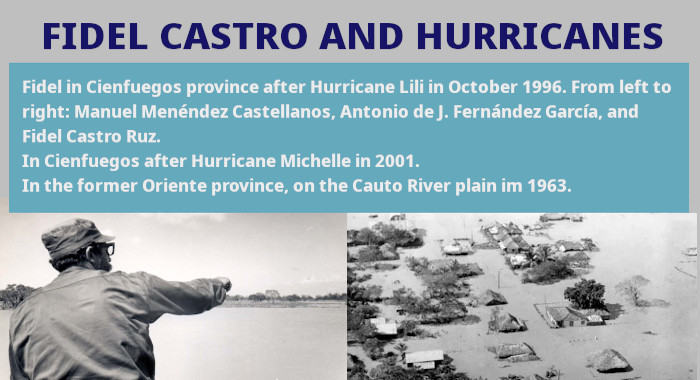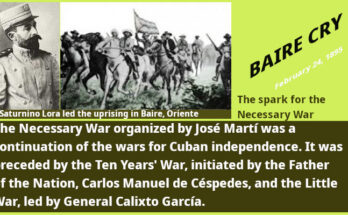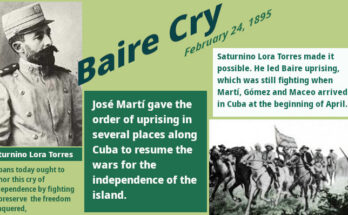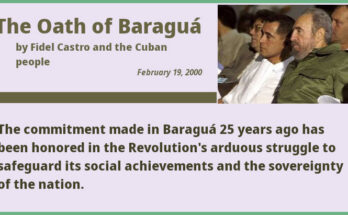Humanitarianism is an ideology centered on the value of human life, whereby humans practice benevolent treatment and provide assistance to other humans to reduce suffering and improve the conditions of humanity for moral, altruistic, and emotional reasons. Commander-in-Chief the Cuban Revolution, Fidel Castro assisted personally people affected by Cyclone Flora which devastated Cuba in October 1963, causing widespread destruction and thousands of deaths.
The Eternal Leader usually visited affected regions in Cuba affected by hurricanes, such are the cases of Hurricanes Lili in 1996, and Mitchel in 2005 in Cienfuegos province. He personally directed recovery efforts, traveling to affected regions and coordinating relief. His hands-on leadership set the tone for Cuba’s disaster management system. He emphasized preserving human life above all else, insisting on evacuations and constant communication with the population.
Fidel Castro insisted that meteorological science and public education were central to protecting the nation. Under his guidance, Cuba developed one of the most effective early warning and evacuation systems in the world, praised internationally for minimizing casualties.
He often reminded Cubans that “nature cannot be controlled, but lives can be saved through organization and discipline.”
The Cuban leader’s vision extended internationally. After Hurricane Katrina in 2005, he offered to send Cuba’s “Henry Reeve” medical brigade to the United States to assist victims. Though the U.S. government declined, the gesture highlighted Cuba’s commitment to humanitarian solidarity.
This reinforced the idea that Cuba’s hurricane response was not only national but also part of a broader global ethic of aid and cooperation.
Fidel Castro’s policies institutionalized community-based civil defense, where ordinary citizens were trained and mobilized during emergencies. His insistence on constant communication, evacuation drills, and prioritizing vulnerable populations (children, the elderly, and women) became hallmarks of Cuba’s hurricane strategy.
Today, Cuba continues to have one of the lowest hurricane-related mortality rates in the region, a direct legacy of the Commander’s approach. His relationship with hurricanes was not just about confronting natural disasters,it was about defending dignity and life in the face of adversity.
From Cyclone Flora to international solidarity during Katrina, Fidel transformed Cuba’s vulnerability into resilience. His leadership reminds us that preparedness is not only technical but profoundly political: a government’s duty is to protect its people, even against the fury of nature.




